Search
Remove Ads
Advertisement
Summary 
Loading AI-generated summary based on World History Encyclopedia articles ...
Search Results
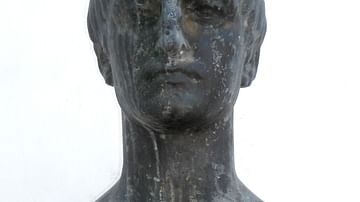
Definition
Marcus Annaeus Lucanus
Marcus Annaeus Lucanus (39-65 CE), grandson of Seneca the Elder and nephew of Seneca the Younger, was a Roman statesman and Latin poet. Born in Corduba, he came to Rome as an infant and later held the positions of quaestor and augur. Lucan's...

Image
Marcus Annaeus Lucanus
Marcus Annaeus Lucanus, grandson of Seneca the Elder and nephew of Seneca the Younger, was a Roman statesman and Latin poet. Lucan was honoured with a prize at the first Neronian Games in 60 CE for a poem praising Nero and was known for the...

Image
Bust of Marcus Annaeus Lucanus
Bust of the Roman poet Marcus Annaeus Lucanus (CE 39-65). Grandson of Seneca the Elder and nephew of Seneca the Younger, was a Roman statesman and Latin poet. The sculpture can be found in his birthplace, Corduba (modern day Córdoba, Spain...

Definition
Roman Literature
The Roman Empire and its predecessor the Roman Republic produced an abundance of celebrated literature; poetry, comedies, dramas, histories, and philosophical tracts; the Romans avoided tragedies. Much of it survives to this day. However...

Article
Marcus Aurelius: Philosopher Emperor or Philosopher-King?
Co-authored by Steven Umbrello and Tina Forsee It is very common to hear in both academic circles, as well as more close-knit Stoic circles, Marcus Aurelius (121 – 180 CE) being referred to as the philosopher king. This is not an idea...
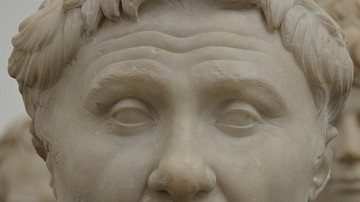
Definition
Pompey
Gnaeus Pompeius Magnus, also known as Pompey or Pompey the Great, was a military leader and politician during the fall of the Roman Republic. He was born in 106 BCE and died on 28th September 48 BCE. His father was Gnaeus Pompeius Strabo...
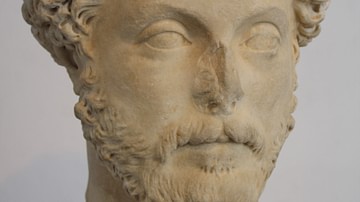
Definition
Marcus Aurelius
Marcus Aurelius (r. 161 to 180 CE) was a Roman emperor best known as the last of the Five Good Emperors of Rome (following Nerva, Trajan, Hadrian, and Antoninus Pius) and as the author of the philosophical work Meditations. Although it has...
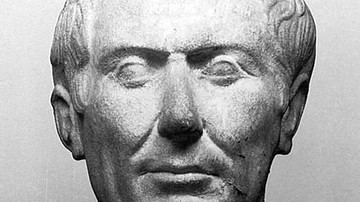
Definition
Julius Caesar
Gaius Julius Caesar was born 12 July 100 BCE (though some cite 102 as his birth year). His father, also Gaius Julius Caesar, was a Praetor who governed the province of Asia and his mother, Aurelia Cotta, was of noble birth. Both held to the...

Definition
Marcus Junius Brutus
Marcus Junius Brutus (85-42 BCE) was a Roman politician and a leading figure in the assassination of Julius Caesar in 44 BCE. Although he was granted amnesty after the Ides of March, a new civil war soon broke out. Brutus committed suicide...
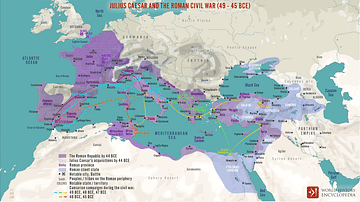
Definition
Roman Republic
In the late 6th century BCE, the small city-state of Rome overthrew the shackles of monarchy and created a republican government that, in theory if not always in practice, represented the wishes of its citizens. From this basis the city would...